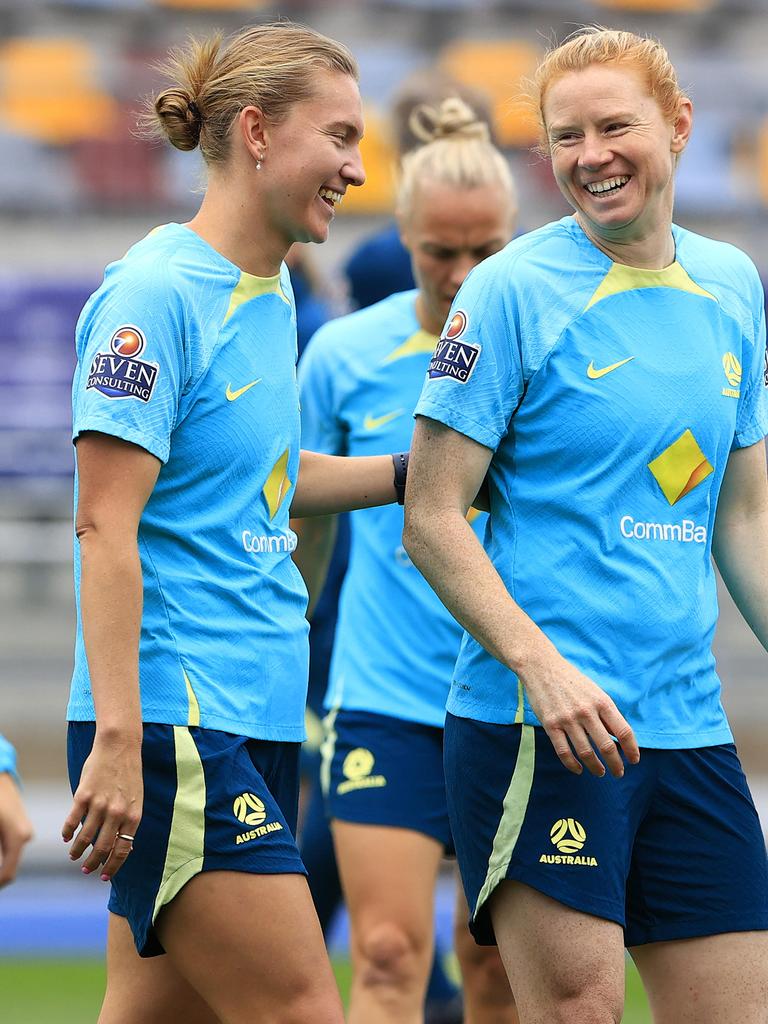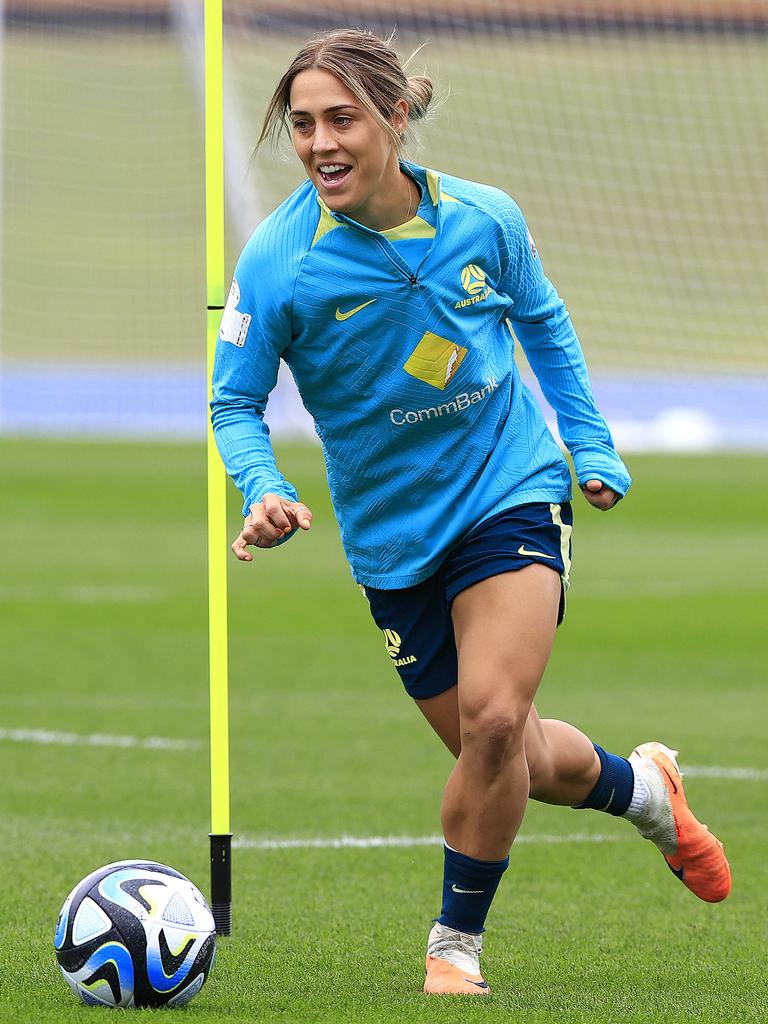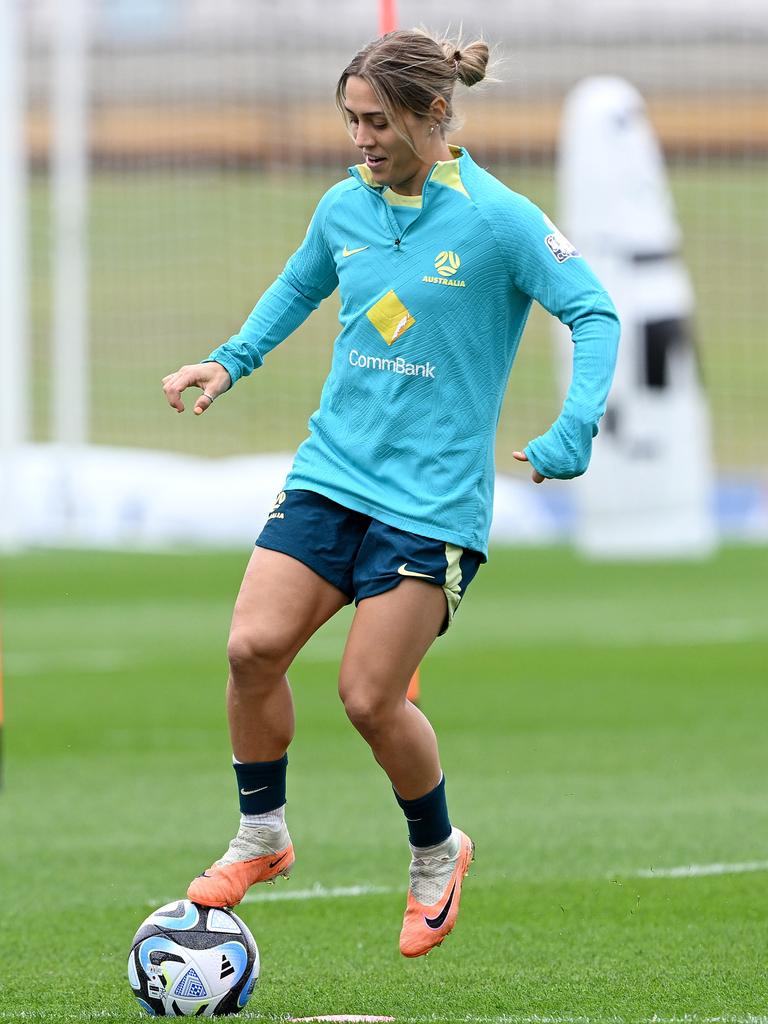Australia has no idea how to talk about women in sport
Sporting events bring Aussies together but the World Cup has also highlighted a big flaw.
OPINION
Australia is finally talking about women in sport and it is clear we have no idea how to actually talk about women playing sport.
The FIFA Women’s World Cup has officially made Australia fall in love with our team the Matildas, and it has really opened up a can of worms.
Channel 7 commentator David Basheer came under fire for commenting on Matildas player Katrina Gorry being a mum and an incredible player.
“Certainly motherhood has not blunted her competitive instincts, that’s for sure. She is one fighter for Australia,” he remarked during their first game in the World Cup.
Depending on who you’re having lunch with, the comment was either incredibly sexist or absolutely no big deal and an example of a woke culture gone mad.


The big pushback against his comment is that we’d never say that about a male player who was also a father, and your point is right, but men don’t have to give birth.
Their bodies don’t have to rebound and reach peak physical condition again to continue being professional athletes. Men’s careers aren’t impacted by their fatherhood, and the uncomfortable truth is that women’s careers are … and traditionally forever.
Does his comment miss the mark? Yes.
It missed the mark but not for the reason everyone is shouting about.
Basheer was right, Gorry does fight for Australia.
She even planned having a child around her chances to play in the World Cup.
“It gave me enough years to get myself back to peak performance, enough football games to put my hand up for selection,” she told The ABC last year.
She kicked every goal and she returned playing for the Brisbane Roar in 2021 only three months after giving birth to her daughter Harper.
THREE MONTHS.
She started with pilates, and then worked up to running, and eventually returned to peak fitness. Even Gorry was amazed by how much she was able to achieve.
“I just have so much more appreciation for my body,” she said at the time.
Basheer was right for acknowledging that she is a mother, her story is so incredibly inspiring but what he got wrong was he acted surprised that motherhood hadn’t weakened her.
He missed a chance to explain what makes Gorry incredible.
But what is equally disappointing, is that most people were just mad that he mentioned she was a mum in the first place.
We should be screaming her story from the rooftops not erasing it.


I don’t want to brush over that achievement just because we wouldn’t comment on how many children a man like rugby player Latrell Mitchell has. For the record he has two daughters and I’m sure he is still very competitive.
I don’t think we should dismiss or ignore the incredible work and achievement it takes for mothers to give birth and return to peak physical condition.
I think our fear of talking about the difficulties of being a female athlete stems from our fear of seeming sexist, but equality isn’t about erasing the female experience.
We don’t want women to be treated like men: we want women to be treated equally, and there is a big difference.
There was also a mixed reaction when the national team’s physician, Dr Brandi Cole, revealed that players’ periods were tracked.
“That’s the good thing about menstrual cycle monitoring – they’re starting to learn about themselves, which empowers our female athletes to get the best out of their bodies,” she told The Sydney Morning Herald.
Dr Cole took it one step further to explain the girls don’t just play together: they also bleed together.
“The girls all seem to get in sync with each other regarding when their cycle is as soon as they come into camp.”

Once again, the conversation created divide.
Some people feel it is a level of scrutiny only female athletes have to bear, and others see it as a relevant information.
The reality is, female players do get their periods and that does impact them and the sport they are so good at.
Sure, there’s no male equivalent, which is one of life’s great injustices, but pretending women just don’t get periods is ignoring the complexities of being a female athlete.
We need to talk about these things and we need to normalise them.
If we can talk about how big Michael Jordan’s feet are, then I’d like to have a conversation about how having a heavy period can impact a game.
Often, a big mistake we seem to make as we try and achieve equality is this knee-jerk reaction to treat women exactly like we treat men.
But do you know what that does? It means we miss out on hearing women’s stories, perspectives, struggles.
We are so busy trying to pretend they don’t get periods or become mothers that we are missing out on getting to know these women in sport and what it means to be a female athlete.
We’ve heard enough about men in sports, I’d really love to hear from the women now.






